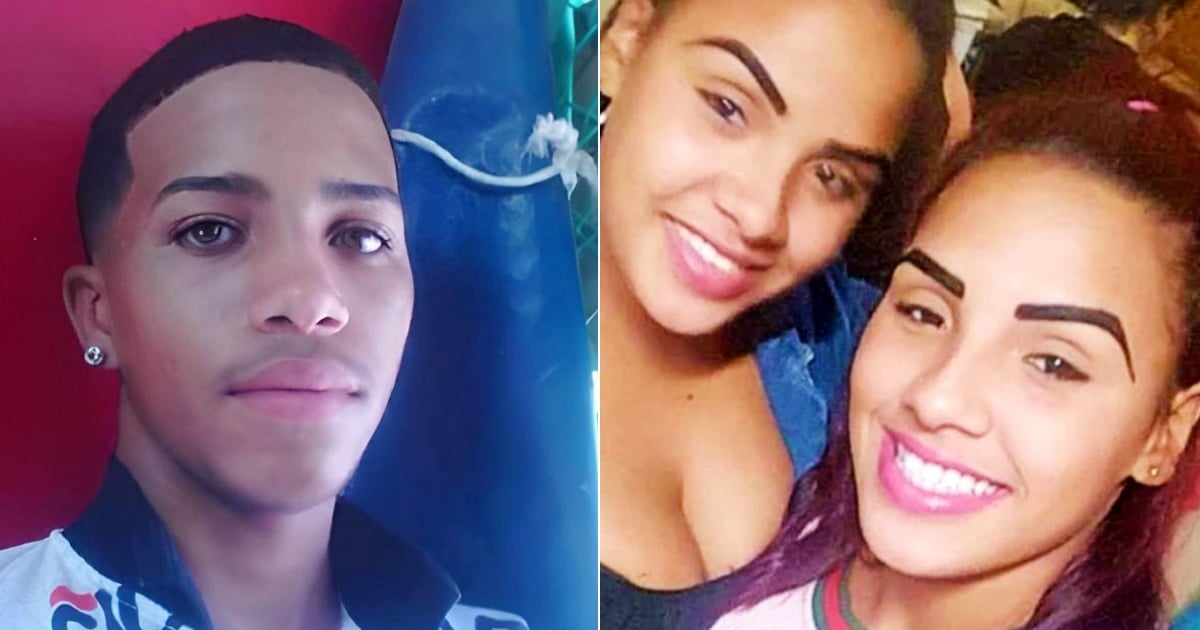This Wednesday morning marked the beginning of the release of political prisoners from the July 11th protests, following negotiations with the United States and mediation by the Vatican. Authorities at Guamajal Prison in Villa Clara province announced the release of Lisdani and Lisdiani Rodríguez Isaac, political prisoners from Placetas, as reported by their mother, Bárbara Isaac Rojas, to CubaNet. The sisters, aged 26, were serving an eight-year prison sentence.
Lisdani, who had been under house arrest since May of last year due to pregnancy complications and gave birth in September, will have her extrapenal license extended until her sentence is fully served. Her sister, Lisdiani, is set to receive conditional release, according to the same source.
Another individual granted freedom is Rowland Castillo, who was one of the minors detained in the Toyo neighborhood of Havana's Diez de Octubre municipality. Castillo, who turned 18 while in prison, is now back home.
Reyna Yacnara Barreto Batista, a young political prisoner from the July 11th protests in Camagüey, was also released on Wednesday, as announced by her mother, Reyna Luiza Batista Silva, on social media. "She was part of the first trial in Cuba for July 11th participants and is now the first woman to benefit from the upcoming changes," noted Batista Silva on Facebook, alongside a photo with her daughter. Barreto Batista, only 21 years old, was sentenced three months after the protests to four years of corrective labor with incarceration for charges of public disorder and assault.
The Cuban regime twice denied Barreto Batista's right to conditional release: first in August 2023, and again in August 2024. Her charges stemmed from resisting a uniformed officer during the July 11th protests. As of this report's publication, CubaNet also noted the release of Libano Hernández Sosa (conditional release), Reyna Barrero Batista, and Donaida Pérez Paseiro, though the specifics of their release remain unknown.
Background on the Releases
On January 14, shortly after the Biden Administration announced Cuba's removal from the list of state sponsors of terrorism and the suspension of Title III of the Helms-Burton Act, Cuba's Ministry of Foreign Affairs (MINREX) unveiled plans to release 553 individuals convicted of various crimes on the island.
MINREX emphasized that these releases are in the "spirit of the Ordinary Jubilee Year 2025" and followed negotiations with the Catholic Church, the Vatican, and the mediation of Pope Francis. According to the official statement, Miguel Díaz-Canel sent a letter to the Pope to inform him of the decision. Amnesty International (AI) also called on the regime to immediately release all political prisoners in Cuba.
"In light of the Cuban government's announcement to grant penal benefits to 553 individuals, we demand the immediate release of all those unjustly imprisoned for exercising their rights in Cuba, particularly prisoners of conscience," declared the organization in a statement.
Insights into the Political Prisoners' Release
What led to the release of July 11th political prisoners in Cuba?
The release resulted from negotiations between the United States, Vatican mediation, and the Cuban government, coinciding with changes in international relations and policy shifts.
Who are some of the notable prisoners that were released?
Notable releases include the Rodríguez Isaac sisters, Rowland Castillo, and Reyna Yacnara Barreto Batista, who were involved in the July 11th protests.
What role did the Vatican play in the prisoners' release?
The Vatican, through Pope Francis, played a mediating role in negotiations that facilitated the release of these political prisoners.
How has Amnesty International responded to the Cuban government's actions?
Amnesty International has demanded the immediate release of all political prisoners in Cuba, criticizing the regime for unjust incarcerations.
